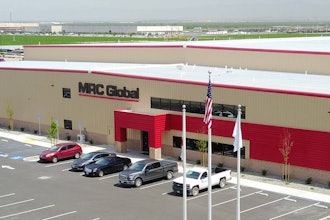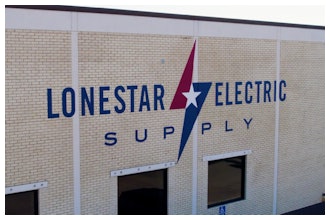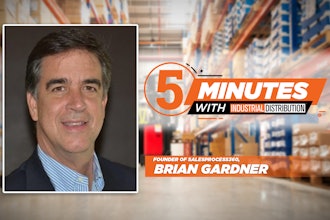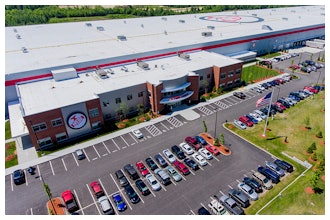Business-to-consumer online sellers have transformed retailing over the last two decades. Online buying has changed from a novel activity to a routine occurrence. U.S. consumers spend almost a billion dollars a day on retail e-Commerce sites.
Online business-to-business sales aren’t far behind. Global research and consulting firm Frost & Sullivan projects the B2B e-Commerce market will outgrow B2C market by 2025. Part of that growth will come from B2C sellers that start marketing to business procurement specialists.
As a procurement specialist, you’d be right to welcome more competition. But before you jump into B2C online marketplaces, consider how B2B and B2C purchasing differs. B2B purchasing involves much more than just finding the cheapest price, and the difference between what a B2C seller can offer and what a B2B seller provides is significant.
You need to look before you leap.
The buying process
When consumers purchase something, the process probably looks something like this: Read a few product reviews, look at the product pictures and enter your credit card number to buy from whoever’s selling it for the lowest price. That’s fine if you’re purchasing a new pair of shoes or trying to track down a popular toy for your kids.
For purchasing specialists at manufacturing companies, buying is their primary, full-time job. They usually have specialized education, certifications and other credentials. Their process includes working with others to forecast demand, track inventory levels, take orders, source qualified vendors, prepare RFPs and more. Delivery time, financing arrangements, product quality and other factors are critical.
Purchasing specialists also must manage risk: What if my supplier runs into a manufacturing or shipping problem of their own because of a natural disaster or a plant accident? If we’re buying from an overseas supplier, what’s our financial exposure if currency rates fluctuate rapidly?
Purchasing specialists’ decisions have a major impact on profitability, productivity and product quality. Online B2C sellers often act as little more than order takers and payment processors for suppliers that will ship their own products straight to the customer. They simply can’t provide the information purchasing specialists need.
B2B suppliers and distributors, on the other hand, routinely provide this kind of information to their customers.
Total cost of ownership
If you buy a pair of Nike running shoes from a B2C e-Commerce site, even if you choose the lowest cost, you know what you’re getting: Running shoes from Nike. When you’re buying reamers, however, you’re looking for tools with exact specifications for your manufacturing processes.
A mistake on the reamer order — a shipment that’s not on time, doesn’t match your specs or requires extra labor to make operational — could lead to unscheduled downtime on one or more machines. That in turn can mean production slowdowns, missed shipments, upset customers and lower revenues and profits. The total cost of ownership of those reamers involves much more than simply the cost of the tool.
Purchasing specialists often order hundreds or thousands of items at a time, and often make repeat orders. They depend on their suppliers to get it right – every time.
On a B2C online marketplace, it’s hard to assess the quality and reliability of suppliers, even if they claim to be able to provide what you need. And if something does go wrong – will you even be able to contact the supplier?
Relationship
You probably don’t care that much who you buy those Nikes from. You certainly don’t want a relationship with that company, and the next time you buy a pair of running shoes you might choose a different seller if you can find a lower price. But for manufacturers, relationships with suppliers are critical. Strong relationships are a key asset for purchasing specialists.
- If something doesn’t arrive on time or doesn’t perform as advertised for a customer, having a relationship means you replace the tool part or supply quickly.
- If your managers, engineers or technicians need help with something you’ve purchased, a relationship can provide the answers you need fast.
- If you’re having trouble identifying a product to fill a particular need, a relationship helps you apply outside expertise to the problem.
And relationships mean you can negotiate payment terms (say, 60 days instead of payment in advance), get custom packaging to reduce waste on the shop floor and negotiate price discounts.
Relationships take time to build, and purchasing specialists have a limited amount of time to spend developing those relationships. B2B suppliers and distributors have spent decades understanding the needs of manufacturers and developing their own in-house talent. When manufacturers need advice, support or anything else, those suppliers can deliver.
Post-purchase support
Manufacturers’ needs don’t end once they’ve ordered something. Support after a purchase is a critical part of the total package that a good B2B supplier or distributor provides.
When those running shoes arrive, all you need to know is whether they fit. But a tool part that wears too quickly or doesn’t perform as expected in a new manufacturing process can create a major problem for a manufacturer.
If you bought that tool part from a giant B2C e-Commerce site, who are you going to call? But if you ordered it from a B2B distributor or supplier you know you can make a single phone call and arrange for the suppliers’ technical experts and your engineers to discuss the problem and find a solution.
In addition to troubleshooting problems, B2B focused suppliers and distributors can add additional value. They often have proprietary expertise and knowledge that they can apply to your manufacturing process. Frequently, that leads to custom solutions that can boost productivity, efficiency and profitability for the manufacturer.
E-procurement systems
Finally, B2B distributors and suppliers often use technology that is just as advanced — and sometimes more advanced — than that used by well-known B2C
e-Commerce sites. The difference is that rather than focus on a consumer problem, like selling clothes that fit well, these e-Procurement systems are focused on solving manufacturers’ problems.
For example, e-Procurement and inventory management systems can partially or completely automate resupply activity, freeing up purchasing specialists to spend their time on more valuable activities. Those systems also provide data manufacturers can use to optimize their own operations and become more innovative.
Easy-to-use data and reports provide insight into spending patterns and point to areas where a manufacturer could become more efficient.
The most forward thinking B2B distributors also provide specialized expertise in areas such as maintenance, repair and operations (MRO) or metalworking. That gives manufacturers access to engineers and consultants who already have specific, relevant knowledge about their products, their company and their industry. You won’t find that in the FAQ section of a B2C e-Commerce site.
B2B suppliers and distributors have adopted many of the technological best practices first pioneered by B2C e-Commerce companies. But they’ve also retained their unique relationship-focused business process and their specialized expertise. That means that B2B-focused sellers will remain the best option for manufacturers’ purchasing specialists.
Simeon Chiger is Director of E-Procurement & Last Mile Services at MSC Industrial Supply — No. 11 on Industrial Distribution's 2017 Big 50 List.






















